Empire Ears has accrued the reputation of the flashy and ostentatious sibling in the IEM universe. However, their creations continually integrate substance with style in a line-up catering to a range of eclectic tastes. The ear behind the brand is Mr. Dean Vang, a prior musician and long-time owner of a hearing aid and OEM in-ear monitor company. With a vast amount of experience under his belt, each of Empire Ears’ monitors pack in a range of researched technologies and innovations.
The newly released Empire Ears Odin is their proudest creation to date featuring 11 drivers in a ‘tribrid’ design. This new format has recently been explored in other IEMs and could be considered a new era of in-ear monitor designs.
The Odin features dual dynamic drivers (W9+) along with 5 balanced armatures for the midrange and 4 electrostatic drivers for the higher frequencies. This is tied together with an 7-way SynX Crossover Network with Empire’s own proprietary ‘Intelligence Variable Control’ technology to unify the electrostatic drivers with other driver types.
At $3399, the Empire Ears Odin is one of the more expensive monitors reviewed here on Audiosolace. Part of the added cost can be explained by Empire Ears throwing in their own $1299 bespoke cable touted the ‘Stormbreaker’ – a collaboration with high-end cable manufacturer PW Audio & Japanese electro-mechanical brand Pentaconn.
Secondly, the Odin is the culmination of plentiful R&D efforts with Dean Vang describing the Odin as the best product he has ever created.

The Box & Accessories
With the Founder’s Edition at hand, the Odin arrives in quite possibly the best packaging I have seen from an IEM. Immediately, you are greeted with a compact box with an outer white sleeve featuring luxurious and clean stylistics of the ‘Odin’ monomer with an apt description below.
The sleeve can be removed to reveal an inner black box – this time heralding a silver embossed ‘Empire Ears’ logo with a tagline of ‘The Pursuit of Extraordinary’. The black box lifts to expose signatures of the production team, a Founder’s Edition Plaque, production photograph signed by Dean Vang and a foam insert containing the Odins themselves.
A nice addition is a drawer compartment at the bottom of the box which slides out to uncover an anodized aluminum ‘Pandora’ case, cleaning tool, cleaning cloth and Final Audio ear tips. Despite some other brands having even more ‘grandiose’ packaging – Empire Ears have rightfully pursued the ‘classy utilitarian’ approach without consuming extraneous space.
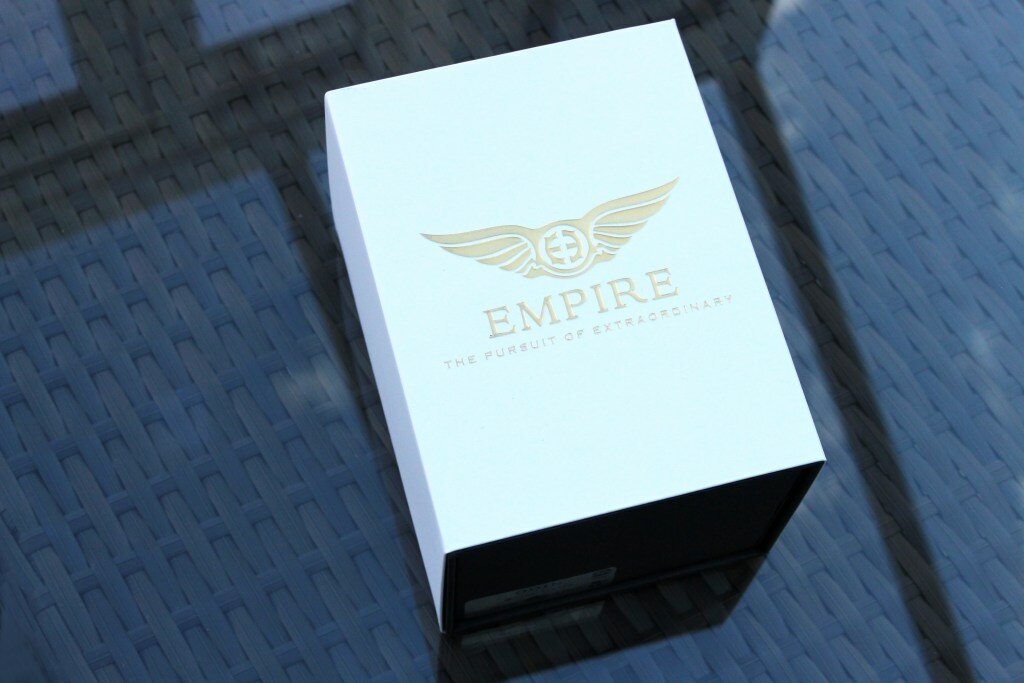
The Design & Build
On the face of it, the aesthetics of the Odin are quite polarizing. It is a multicoloured affair which Empire Ears claim to simulate the mythological rainbow bridge between Midgard & Asgard. The faceplate, named the Bifröst, is the work of an ‘award-winning’ chemist and is created from nine individual polymer layers which shimmer in the light at different angles. Personally, I do prefer the more subdued and deep black appearance of the Legend X while others may be more intrigued with this bejewelled design.
Each pair of monitors are handcrafted by artisans possessing years of experience in OEM manufacturing. The outer shell is still Empire Ear’s signature black with three vent-hole ports. Overall, the housings are compact and polished with the Founder’s Edition displaying a signature of Dean Vang.
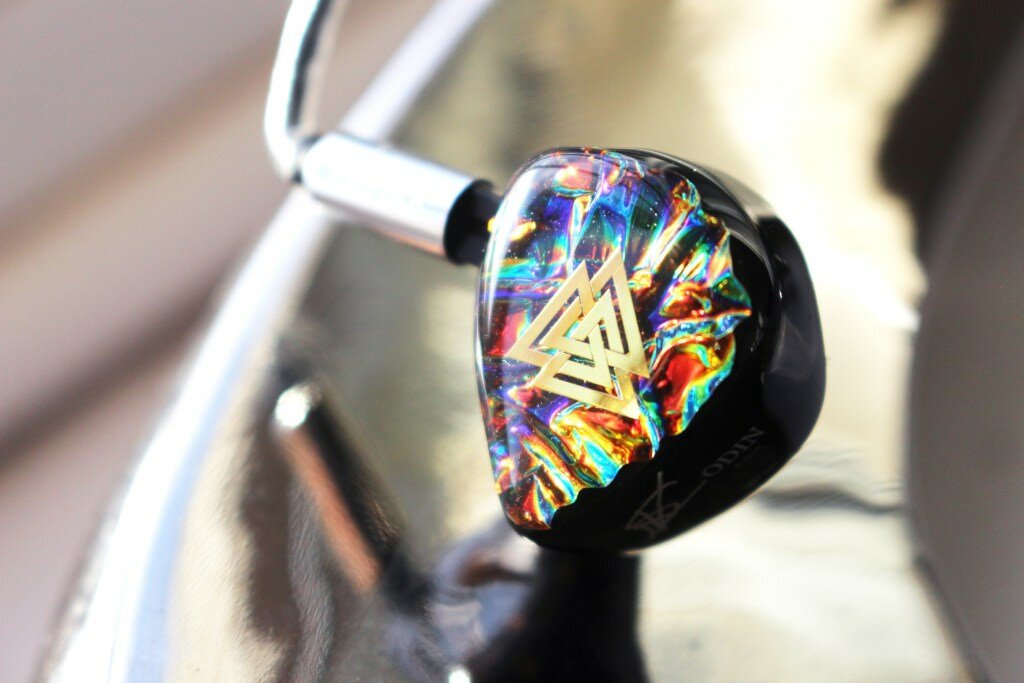
The Technology
The Empire Ears Odin brings forth a conglomerate of technologies to provide an advanced in-ear monitor.
One of the advantages of vertical integration is that a company can easily source and control their own production materials. Originally an OEM IEM manufacturer, Empire Ears has the advantage of developing proprietary drivers and technology in many of their products.
The signature Weapon IX (W9+) 9 mm dynamic driver is one example of this. Each of the rare-earth magnet subwoofers are developed in their Norcross, Georgia laboratory to exacting standards. The woofer is enclosed in a ‘tuned bass-reflex’ system with a larger internal coil diameter to provide shifting mass while mitigating distortion.
There are four electrostatic drivers which work in unison with their proprietary EIVEC technology (Empire Intelligent Variable Electrostatic Control) to output the higher frequencies. While marketed as ‘electrostatic’ – the drivers are technically ‘electret tweeters’ which come with a pre-charged bias without the need for a dedicated energizer. Regardless, there has been a trend with the release of Sonion’s e-tweeters to incorporate this technology in in-ear monitors.
The SynX Crossover Technology is an advanced and uniquely designed crossover which Empire Ears claim to enhance spatial staging and improve the smooth phased response. This 7-way crossover is one of their most complex yet with the marriage of three different driver technologies.
Finally, each component has an anti-resonance compound (ARC) applied to reduce unwanted noise while simultaneously improving clarity and IEM efficiency.
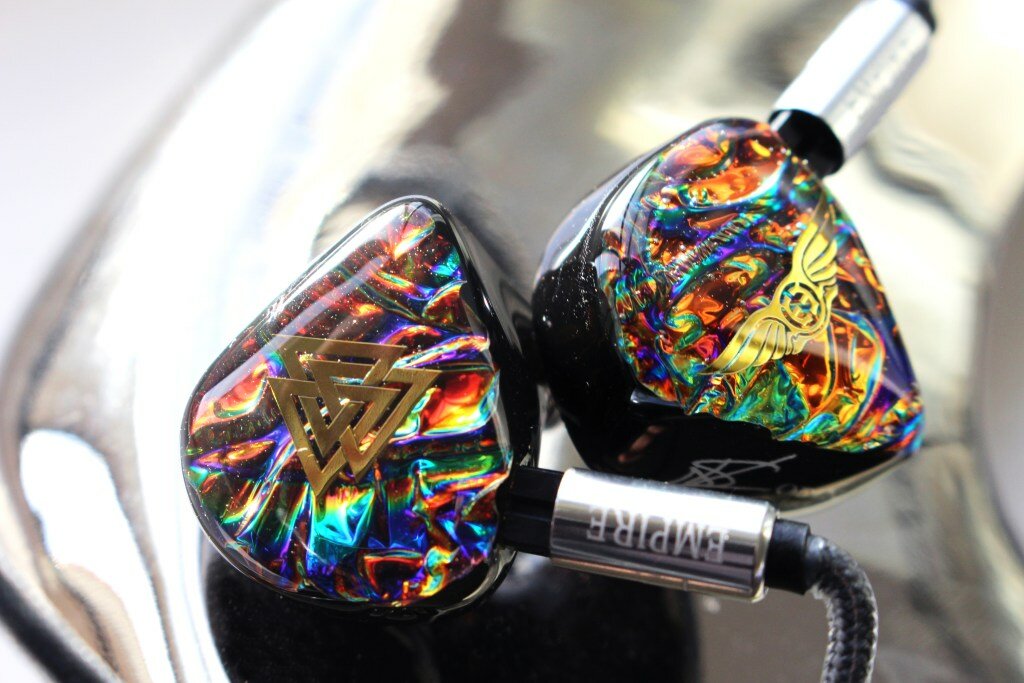
The Fit & Isolation
Despite hosting a range of innovations and driver types, the shells of the Odins are relatively compact and rest nicely within the conchae of the ears. They offer superior level of comforts for their universal design. This is indeed helped by the nozzle spout and memory cable.
Isolation levels are more than adequate shielding users from ambient distractions. The supplied range of tips (the Final Es) are great but do require some effort to fit onto the wide-bore nozzle.
The Cable
The ‘Stormbreaker’ cable is the result of a first-time collaboration between Empire Ears and PWAudio of Hong Kong & Pentaconn of Japan. The handcrafted cable is configured from OCC Copper Litz in a quad conductor and dual gauge design. Aesthetically, the jet-black carbon jacket suits the overall look that the Odin is going for and is complement by a stunning CNC silver Valknut Y-split. The cable terminations, themselves, come in a 2.5 mm or 3.5 mm jack with users having the option to buy an adapter from the Empire Ears website.
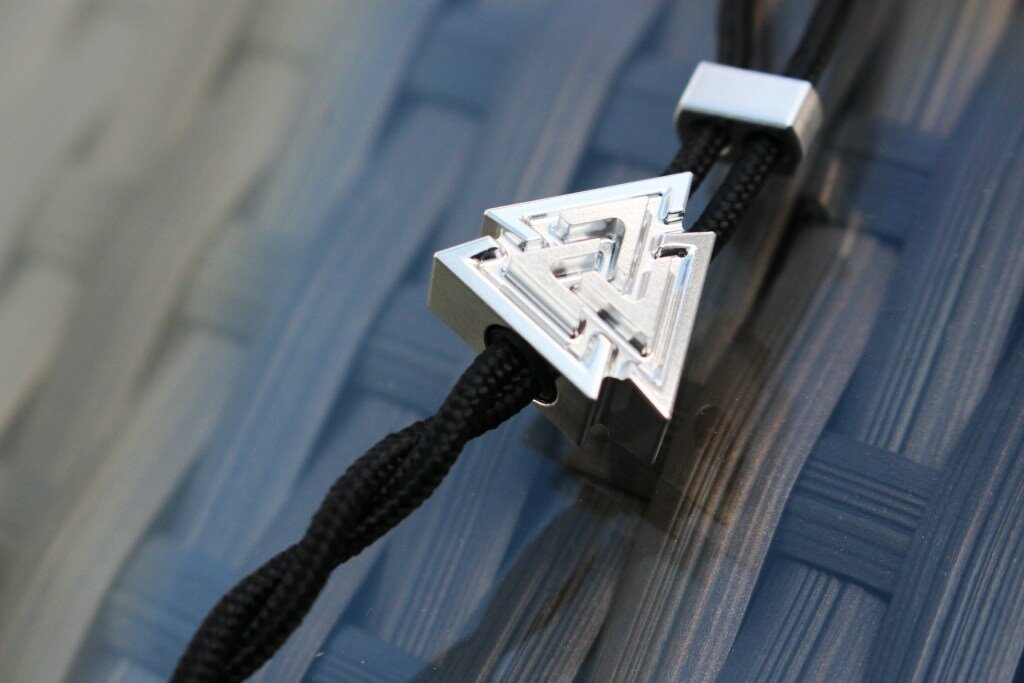
Sound impressions
The Bass
The low-end of the Odins is quite unique – the W9+ subwoofers really deliver power and authority while diligently keeping notes in check. This is not the BA-type of low-end with lack of absolute moving mass, neither is it the characteristic dynamic driver bass naturally susceptible to an element of bloom and rear-note linger. Instead, the Odin capitalizes on weight and slam without its associated flaws. This allows the low midrange to shine for what it is without interference from the upper bass region.
The Odin’s low-end is more sub- than mid-bass orientated with a gentle sloping from the very low frequencies to higher up. The bass of the Odins does lie very close to my personal targets – it possesses an uncanny ability to marry explosive with polite without sounding unnatural or as sharply curtailed as the intra-bass transition of the Fiio FA9.
The Mids
Five balanced armatures are used to drive the midrange with a central prominence in the 1.5 K to 3K regions. This is preceded by a relatively shallow dip in the lower midrange and superseded by a sustained lift in the upper midrange. As a result, there is a mid-forward emphasis with immediacy and energy in the higher frequencies. This is not a rich or analogue presentation but tastefully balances a full note size with clarity, separation and nuance.
Owing to the slight pull-back in the 3.5K frequencies, vocals evade a ‘glare’ and unpleasant harshness that other monitors may be susceptible to. In addition, the Odin repeatedly demonstrates fantastic three-dimensionality with vocals hosting a well-crafted staging with excellent depth.
The Tia Fourte, on the other hand, displays a more u-shaped imposition to its midrange performance giving it a more distant and relatively less involved sound.
The Treble
The treble of the Odins lies behind the upper midrange presence and is slightly more restrained as a result. Compared to the Tia Fourte, it is less forthright and linearly extensive but remains very resolving and nuanced. Cymbal crashes and high hats sound natural without over-emphasized sizzle or pronounced attack. There is a nice element of height and detail from the electret drivers which strike a good balance between analytical decisiveness and an agreeable tonality.
The Soundstage & Imaging
The Empire Ears Odin boasts a larger than average soundstage excelling particularly in the element of depths and left to right panning. It also has a fantastic three-dimensionality and separation which prevents the soundscape from being ‘flat’ or uniplanar. In terms of sheer staging proportions, however, it is not the largest I have ever heard.
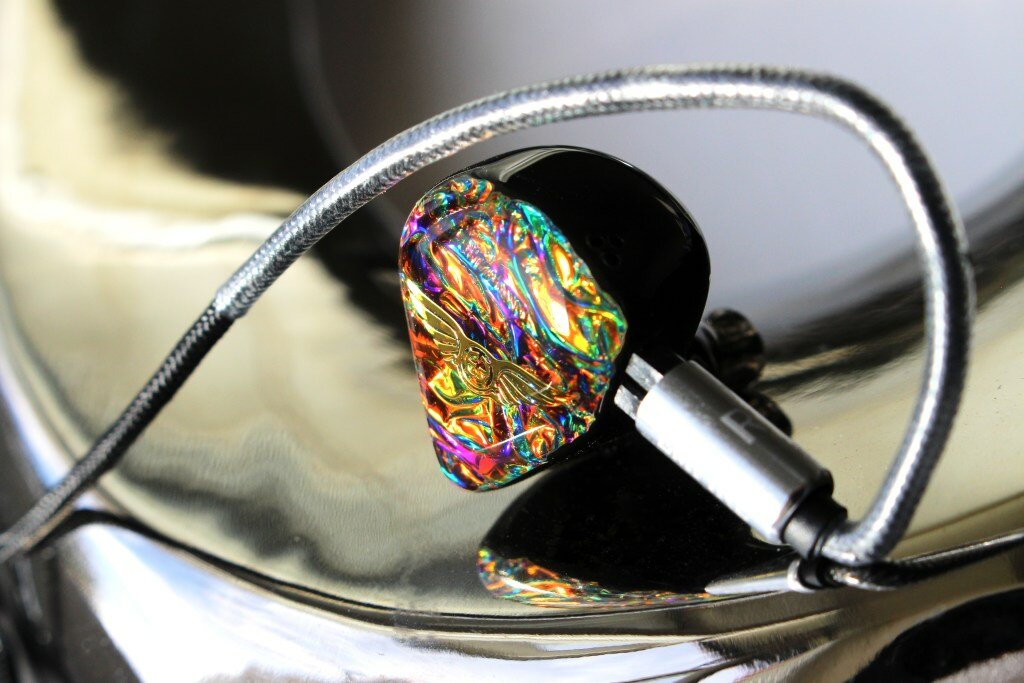
Comparisons
64 Audio Tia Fourte ($3599)
The Tia Fourte and the Odins retail for similar amounts and are the flagship monitors of their respective lineages. At the low-end, the Odin is much more controlled and articulate with sub-bass demonstrating power as well as restraint. The Fourte, on the other hand, has extensive lows with a slower decay and a more characteristic dynamic sound.
The midranges are also notably different with the Tia Fourte portraying more pulled-back mids whereas the Odins places it center stage. As a result, the Fourte can sound more distant whereas the mids of the Odin appear more involving. The lower midrange of the Fourte has more weight and body compared to the Odins owing to the warmth lent from the bass.
At the high-end, the Fourte renders more ‘apparent’ detail and energy whereas the Odins sound relatively more relaxed. The Fourte does demonstrate a larger soundstage in absolute proportions while the Odin is more ‘3D’ sounding.
Shure KSE1500 (KSE1200 system – $1999)
The Shure KSE1500 is the world’s first single-driver fully electrostatic earphones. Compared to the Odin, the KSE1500 is more resolving with an unmatched speed and tautness. The Odin is not strictly neutral with its upper midrange emphasis whereas the KSE1500 is more reference and linear in its tonality.
At the low-end, the Odin pumps out a weightier and more extensive sub-bass whereas the KSE1500 is more refined and articulate. The Odin does renders a more engaging sound with its mid-centric tuning whereas the KSE1500 impresses with its ethereal characteristics.
64 Audio Nio ($1699)
The Nio is 64 Audio’s latest 9-driver hybrid with 1 dynamic driver and 8 balanced armature drivers. Compared to the Odin, the Nio has a more authoritative and analogue bass commanding visceral and textured lows. The Odin, however, while demonstrating great extension and sub-bass prowess has much more control to its low end.
Tonality wise, the Nio is the richer and smoother monitor whereas the Odin renders better detail, separation and mid-centricity. Of the two, the Nio is more fatigue-free but at the expense of absolute technicalities and scale that the Odin manifests.
Conclusion
Dean Vang has done a wonderful job with the Odins – a tuning which is engaging and spirited while being rooted in fantastic technicalities. It is a presentation which manages to exploit desired traits without the inherent consequences. A powerful and yet controlled low-end, a forward midrange devoid of glare and a detailed treble minus the sibilance.
On top of this, the staging is fantastic with one of the most well-layered sound I have heard to date. For these reasons, the Empire Ear Odin can be considered one of the best to have graced the IEM scene of late. I do wish, however, for a better choice of faceplates and perhaps a customization option – though I suspect this may increase the production costs even more.
With the Odins retailing for a considerable $3399 – these already are markedly expensive. Having said that, it is nice of Empire Ear to have included a high-end bespoke cable – an option not always considered even at this price point. The tribrid design certainly works here and I can only imagine it is here to stay.
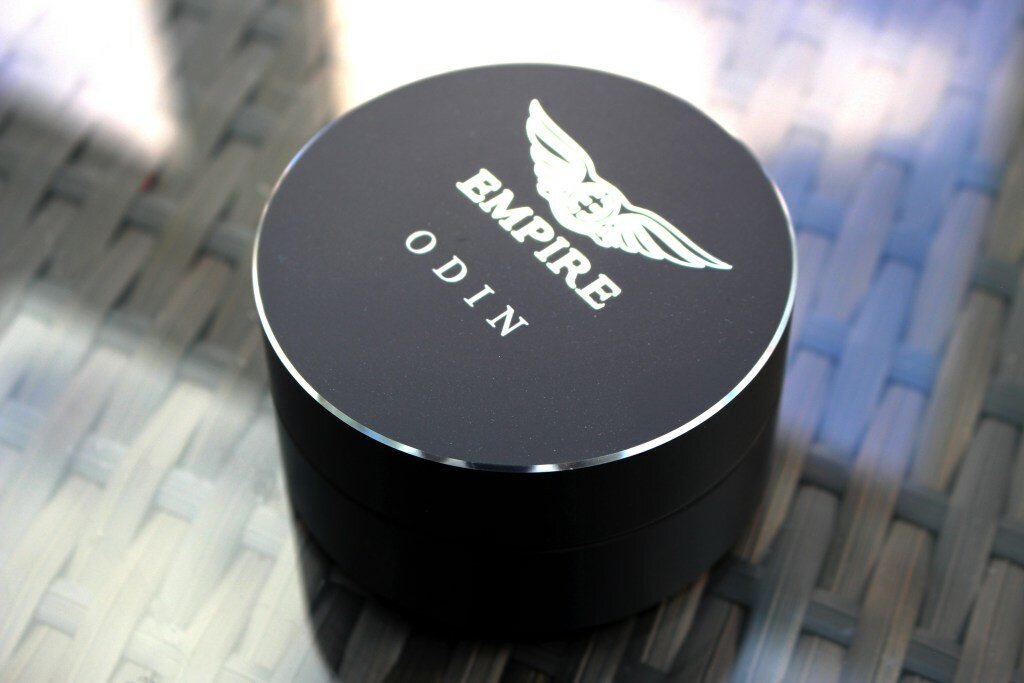
Specifications
- 2x Next Generation 9mm W9+ Subwoofers
- 5x Proprietary Balanced Armature Drivers
- 4x Premium Electrostatic Drivers
- 7-way synX crossover network
- Empire Intelligent Variable Electrostatic Control technology
- ARC Chassis and Components treated with our Anti-Resonance Compound
- Bestpoke Stormbreaker UPOCC Copper Litz cable featuring Quad Conductor Dual Gauge Design
- Ultra-Exclusive BIFROST Faceplate
Empire Ears Odin
$3399
Available from: Empire Ears or UK retailers
